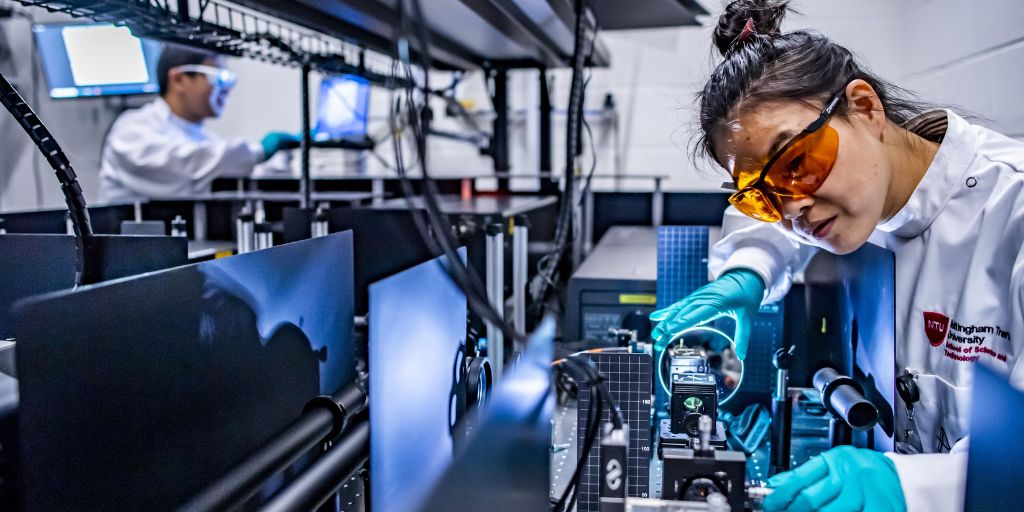
High concentrations of light will be used to study the fast structural changes in single proteins linked to Alzheimer’s through the different disease stages in a first of its kind study.
It is hoped the research, led by Nottingham Trent University, will provide fresh insight into the emergence and progression of neurodegenerative disease, which is known to begin up to 20 years before symptoms appear.
Understanding these processes could pave the way for early-stage diagnosis and therapies for age-associated degenerative diseases, the researchers believe.
The work is being made possible through funding from the Academy of Medical Sciences and will be led by Dr Cuifeng Ying, who is part of the Advanced Optics and Photonics (AOP) group in the university’s School of Science and Technology.
Neurodegenerative disease begins when abnormal proteins begin to form in the brain – and early-stage diagnosis and potential therapies require the detection of these single malformed proteins from a large protein population.
Current technologies, however, are unable to monitor the motions and behaviour of these proteins in solution without modifying them, which it is argued could hamper our understanding of their function.
The work will involve building on a new technique developed by Dr Ying which makes it possible to isolate and study how single proteins behave and change over time in their natural environment and while they are still functional.
The individual proteins can be studied in their natural liquid environment, as the team’s technique can mimic the body by altering factors such as salt concentration, pH, or oxygen levels.
A very high concentration of light, with a beam transmitted through a specifically engineered nanostructure, can generate the right amount of force to grasp and hold a single protein – ten thousand times thinner than a strand of hair – within a fluid, without damaging it.
The technology is able to detect how the light is scatted and the researchers can analyse this unique data to reveal how the protein is behaving in real-time.
The researchers will characterise proteins extracted from fruit flies – which share a large percentage of genes with humans – at different disease stages.
The team will also investigate the responses in the proteins when exposed to different drugs.
Dementia, one of the primary symptoms of late-stage Alzheimer’s disease affects almost 1 million people in the UK and currently costs almost £35bn a year. This cost is projected to increase due to the increasing average age of the population.
“Innovative approaches are urgently needed to understand the triggers of these diseases, enabling earlier disease detection and treatment,” said Dr Ying.
She said: “Previously we’d have had to study many proteins together to see how the group of proteins responds, but through our work we are now able to monitor the behaviour of a single living protein.
“We know that neurodegenerative diseases can start many years before any symptoms appear, as these abnormal proteins aggregate in the brain.
“We hope that knowledge gleaned from our study could drive the development of early diagnosis and therapies for several age-related degenerative diseases, potentially reducing the number of people affected as well as associated healthcare costs.”
The work is being made possible through funding from the Academy of Medical Sciences’ Springboard programme, in partnership with the Government’s Department for Science, Innovation and Technology, Wellcome and the British Heart Foundation.
UK Science Minister Lord Vallance said: “Research supported by the Springboard programme can help to address some of the most pressing health challenges, like antimicrobial resistance and cancer, by giving early-career researchers across the UK the opportunity to test their ideas.
“Through this programme we are supporting the next generation of researchers to lead their own groundbreaking research so that the UK can continue to be a pioneer in medical science.”
Professor James Naismith FRS FRSE FMedSci, Vice-President (Non-Clinical) at the Academy of Medical Sciences, said: “Each Springboard awardee brings fresh perspectives and innovative approaches that will ultimately translate to improved health outcomes for patients and the public.
“The Academy is proud to provide the financial resources and career development support needed to help these outstanding scientists establish their independent research careers.”












